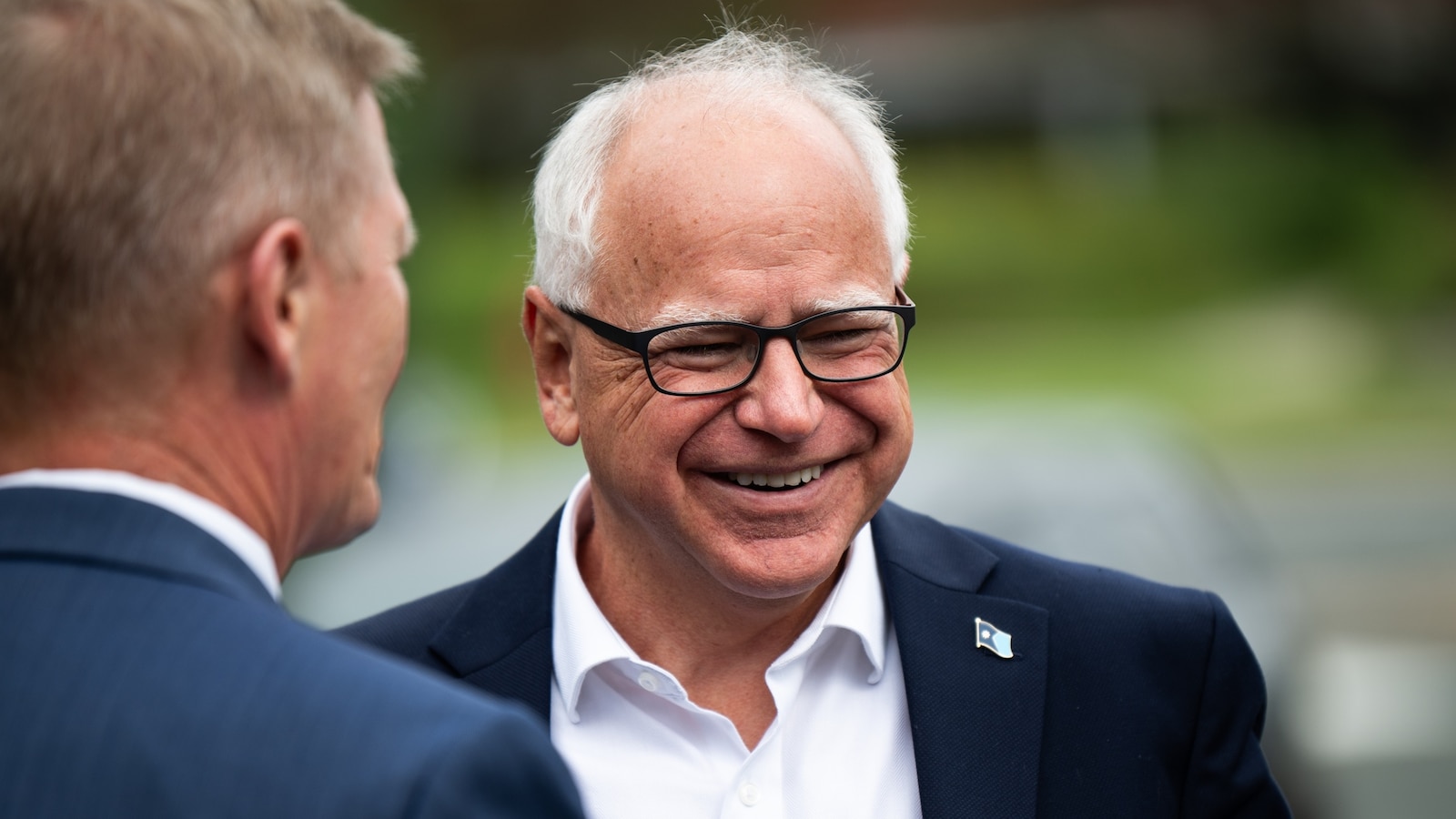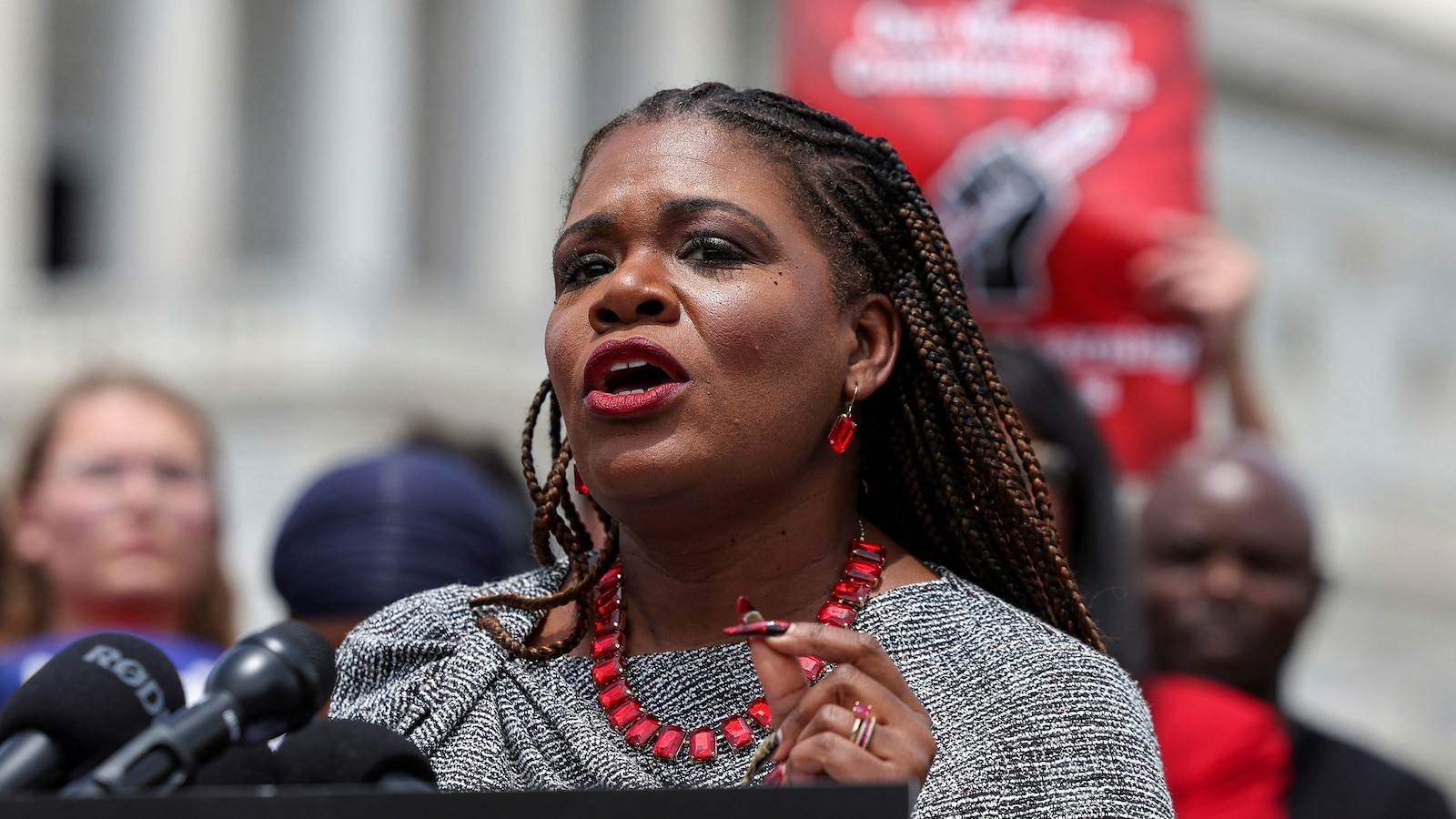In the End, Vice President Kamala Harris Made the Safe Choice
On Tuesday morning, the Democratic presidential nominee tapped Minnesota Gov. Tim Walz to be her running mate. The 60-year-old, white, male former teacher, Army National Guardsman, and congressman isn’t a history-making pick (although he is the first Democratic presidential or vice-presidential nominee since 1980 who didn’t attend law school!), nor will he offer a critical swing-state boost. But unless there are unknown skeletons in his closet, he probably satisfies the first rule of the veepstakes: Do no harm.
Walz’s Credentials
Walz has a strong resume for a VP pick. He was a geography teacher at Mankato West High School, where he was the faculty adviser for the gay-straight alliance and led the high school football team to a state championship. In 2006, he defeated an incumbent Republican representative in Minnesota’s 1st District and spent 12 years in the House cultivating a center-left voting record. Since being elected governor in 2018, Walz has embraced his inner progressive, presiding over a flurry of liberal lawmaking.
Advantages of Walz’s Selection
Walz seems to offer something for everyone in the Democratic coalition and little to alienate key segments of the party’s base. That wasn’t necessarily the case with the other two reported finalists for Harris’s running mate, Pennsylvania Gov. Josh Shapiro and Arizona Sen. Mark Kelly.
Potential Drawbacks
Republicans have already begun to criticize Walz for his handling of the 2020 protests over George Floyd’s murder in Minnesota. And given his relatively low national profile, both sides have an opportunity to define Walz for a national audience.
Probably the biggest drawback is that Walz likely won’t help Harris win the Electoral College as much as Shapiro or Kelly might have. While Minnesota has been drifting toward “swing state” status, it’s still bluer than states like Pennsylvania, Arizona, Michigan, and Wisconsin.
Historical Precedents
In hindsight, we shouldn’t be too surprised that Harris didn’t prioritize Shapiro or Kelly for their home-state advantage. It’s actually fairly unusual for a vice-presidential nominee to hail from a swing state. The Harris campaign might be hoping that Walz can still help electorally in other Midwestern states.
While vice-presidential candidates are worth a 1.7-point boost in their home states, there’s no evidence of similar boosts in neighboring states. In short, Walz wasn’t the best pick if Harris’s goal was to maximize her chances of winning the election.
But historically, the veepstakes has been about balancing the ticket or picking the best governing partner. The choice of Walz fits squarely into that tradition. So while it may not have had the most upside, it is a choice that has served many presidential candidates well in the past.



